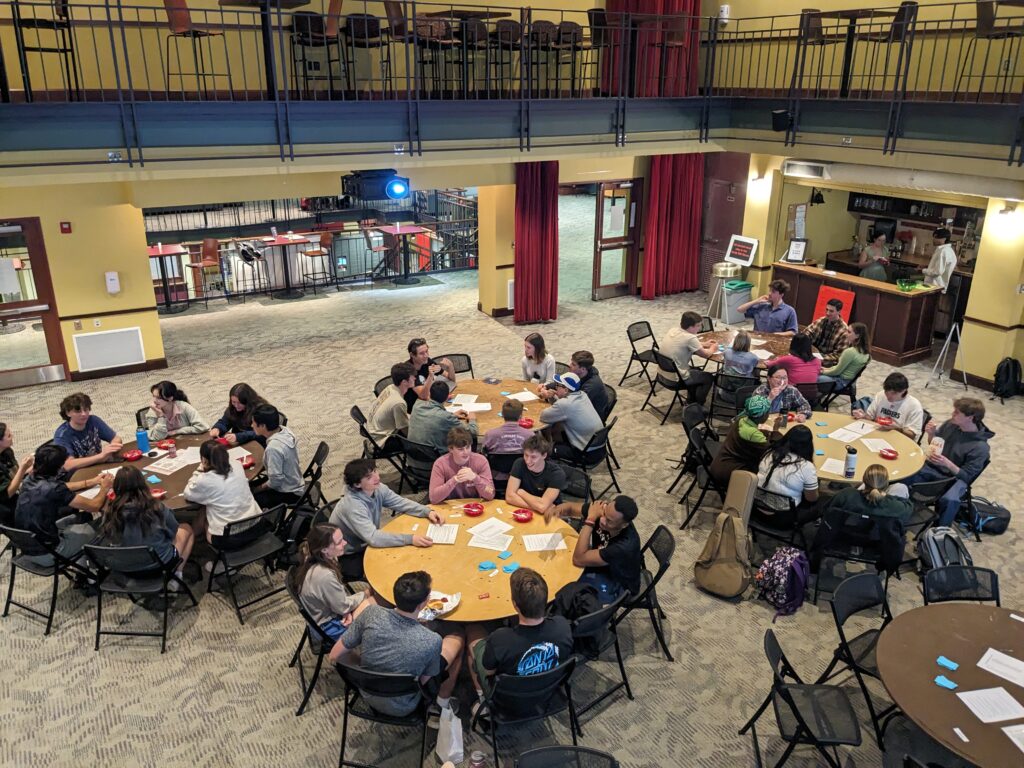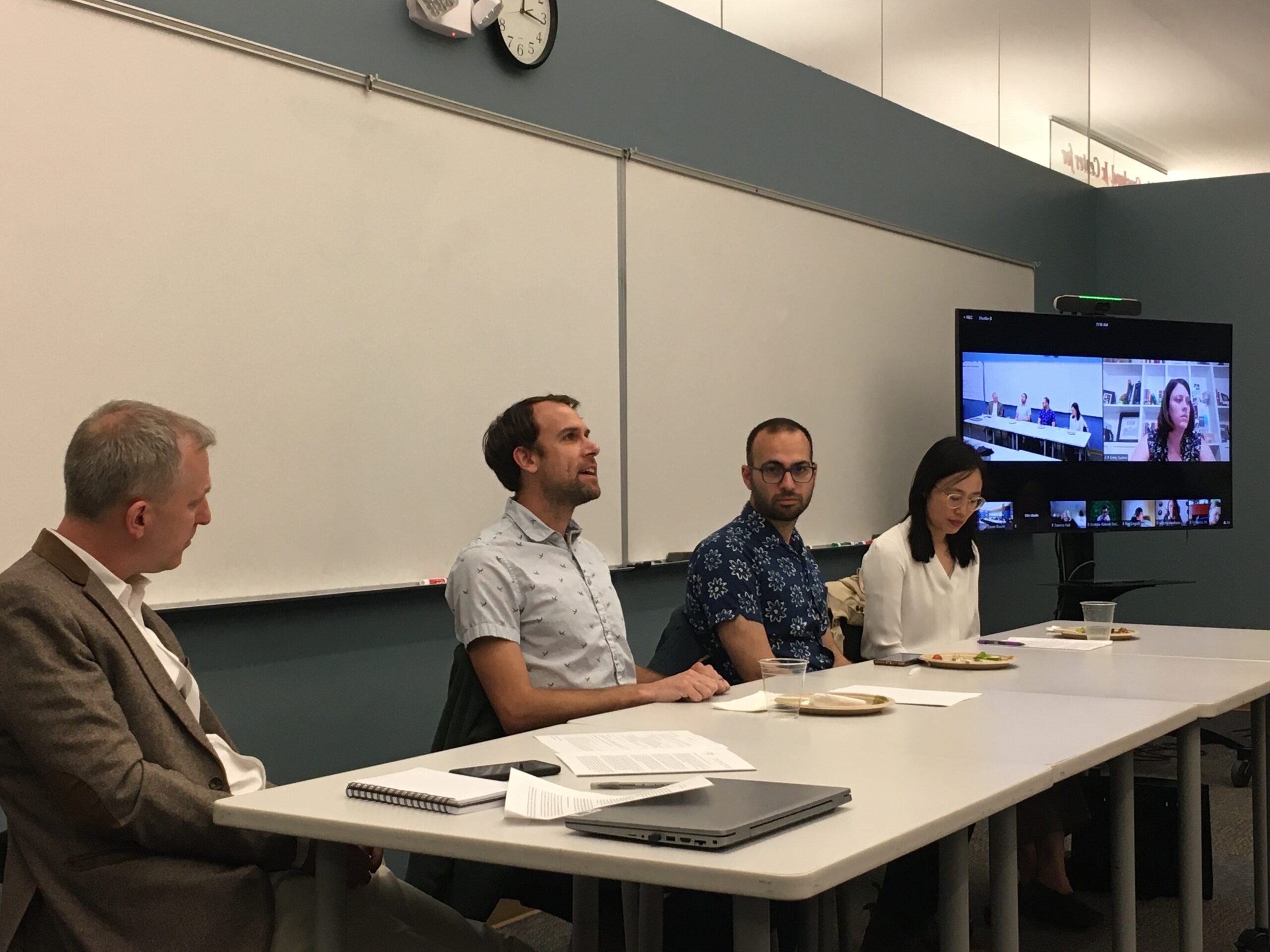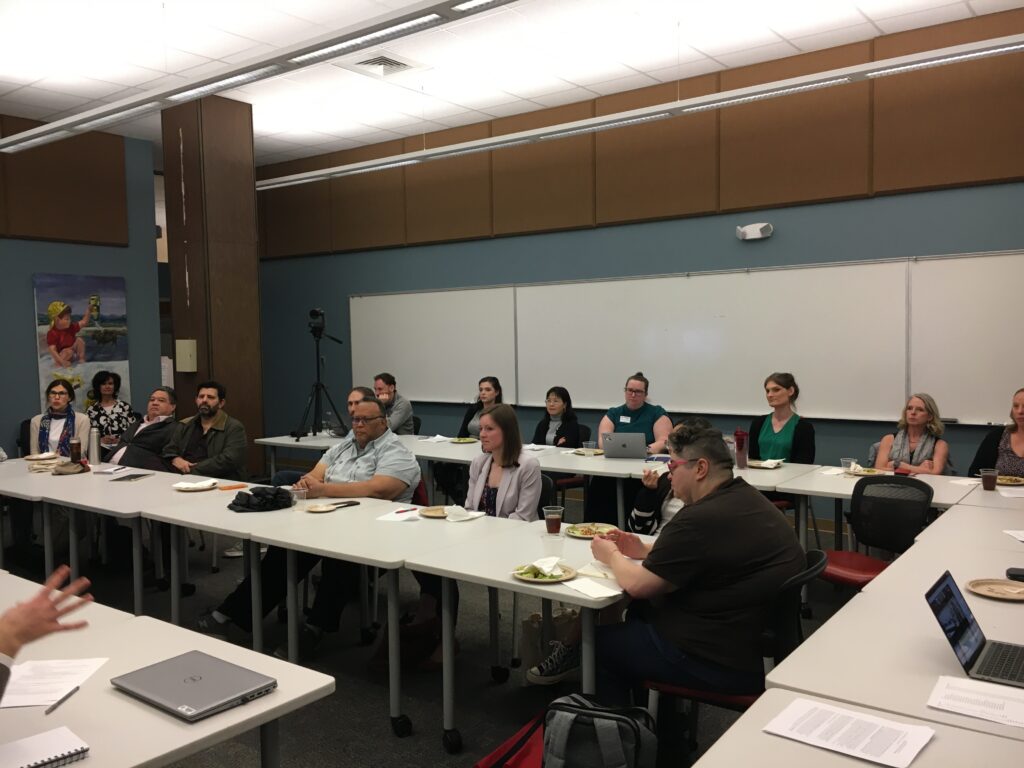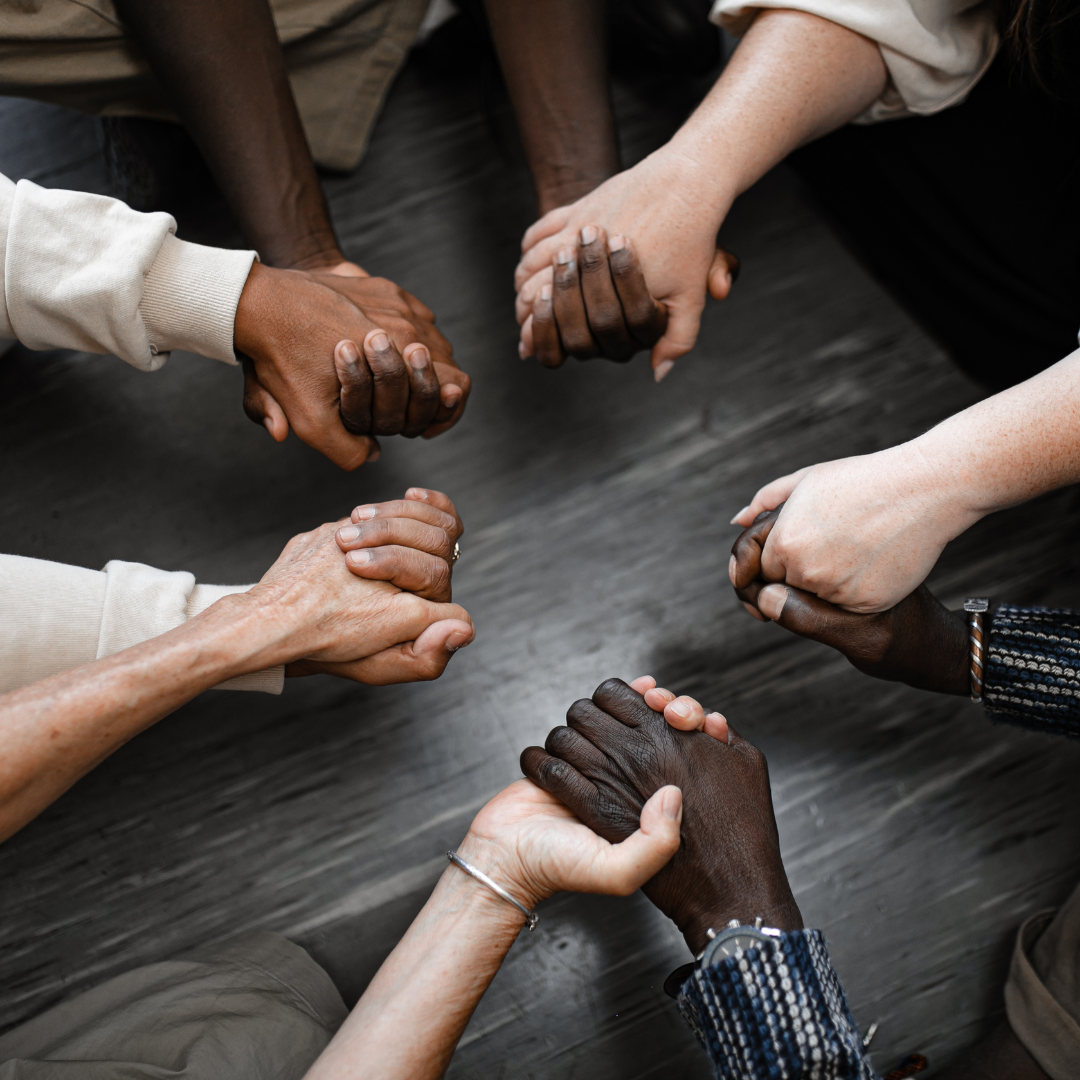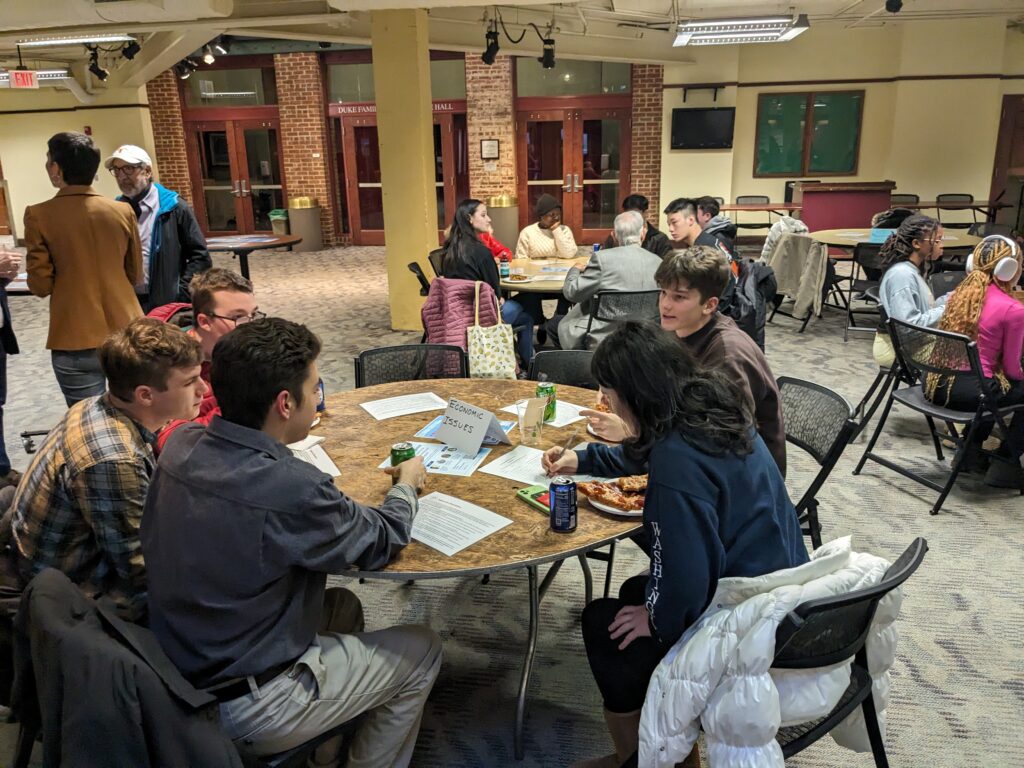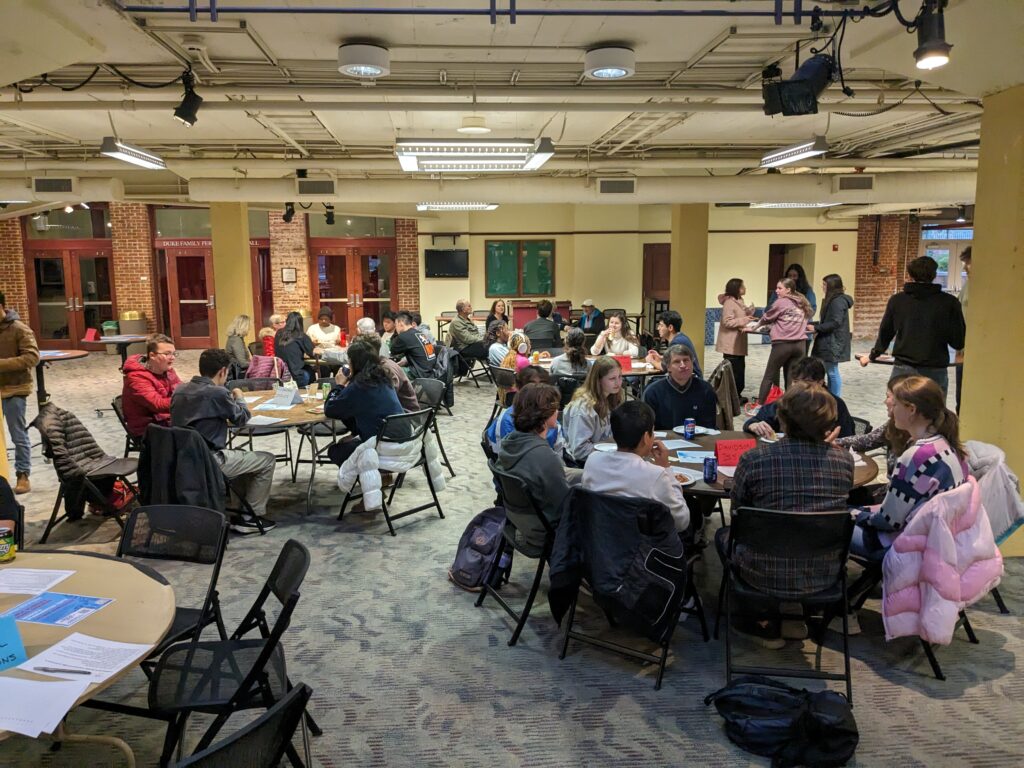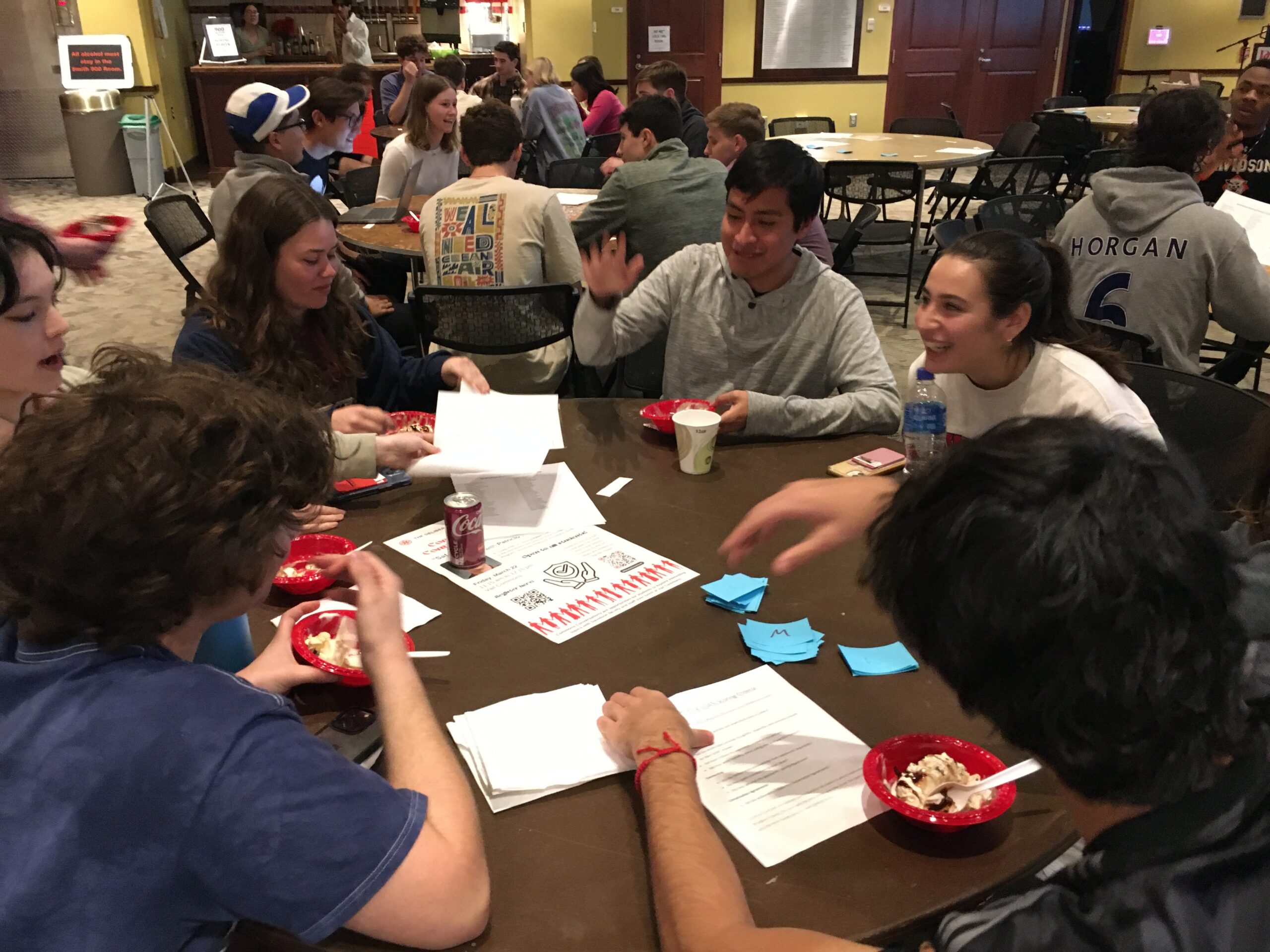
On March 12th, Davidson students gathered in the 900 Room at 9:00 to deliberate about the greatest of all time in music, movies, and Davidson life! The event was hosted by the DCI Fellows, and led by Senior Fellows LJ Phillips ’25 and Body Bassett ’25 and Fellows Logan Jain ’26 and Emre Guvenilir ’25.
The event was organized as a competitive deliberative event, and students enjoyed presenting competing arguments about what the best dorms at Davidson are, who the greatest basketball players of all time are, and all manner of similarly lighthearted but contentious topics. There were ice cream sundaes and premium prizes like DCI-themed Stanley cups. All in all the event was a great success, as it introduced students to the practices and principles of deliberation in a fun and engaging atmosphere.
This was the DCI’s second Deliberating GOATs event, and it is quickly becoming a campus tradition. We hope to see you next spring!
